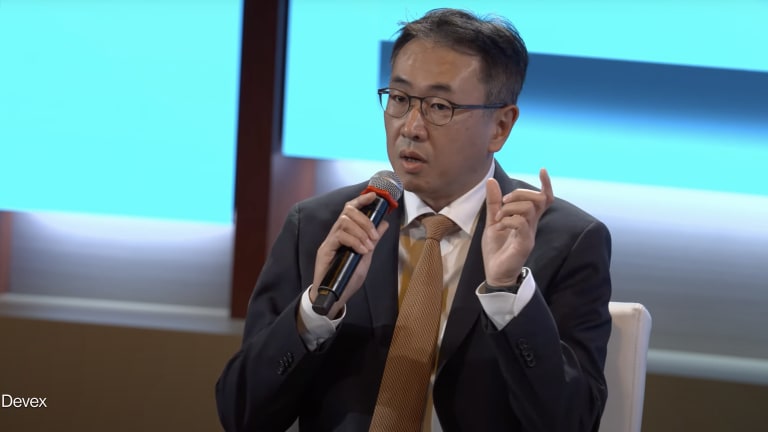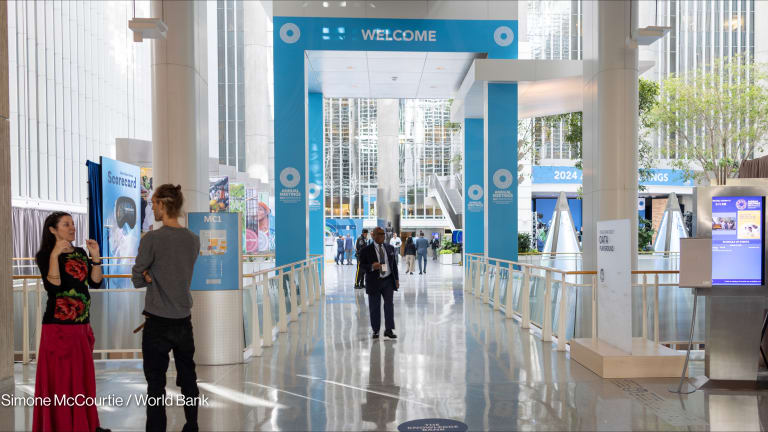
WASHINGTON — The World Bank will split its regional department for Africa in two, effective later this year, World Bank President David Malpass said Wednesday.
Since 2000, the 54 countries of Africa have been internally divided at the World Bank into a regional department dubbed “Middle East and North Africa” and another simply called “Africa” that included all of sub-Saharan Africa. According to an internal announcement obtained by Devex, as of July 1, 2020, the Africa department will be divided into “Western & Central Africa” and “Eastern & Southern Africa.” Each new department will be led by its own vice president.
“We think this will be the most effective way to have country programs be successful and regional programs be successful.”
— David Malpass, president, World BankIn an interview with Devex, Malpass described the move as a “recognition of the big challenges Africa is facing” and an alignment of the World Bank’s personnel and management with its growing loan portfolio for Africa. Africa represents the largest destination for bank resources — getting one-third of total World Bank lending, according to the internal document. Malpass noted that the continent is also home to more than 40% of all people living in extreme poverty.
More on the World Bank:
► World Bank chief eyes 'country platforms' for policy coordination
► In World Bank debut, David Malpass looks to win over staff and critics
► World Bank's David Malpass talks 'decentralization' and private investment
"We’ve been adding resources in sub-Saharan Africa, so the management resources need to be there. We think this will be the most effective way to have country programs be successful and regional programs be successful, both in the Sahel and the Horn of Africa and elsewhere around sub-Saharan Africa,” he said.
Hafez Ghanem, the bank’s current vice president for Africa, will become vice president for Eastern & Southern Africa. Ousmane Diagana, currently the bank’s vice president for human resources and a former World Bank country director for Mali, Niger, Chad, and Guinea, has been named to lead the Western & Central Africa unit.
Malpass characterized the changes as a way for the bank to get closer to borrowing countries. This comes as lending to Africa — and to the many fragile and conflict-affected states there — goes up under the terms of the latest capital increase. While the new vice president roles will be in Washington, “we are moving practice managers” to the region, he said.
The departmental split is the latest in a number of reorganization steps Malpass has taken since he assumed the World Bank’s presidency last year. These steps — some of which began under Kristalina Georgieva when she was interim president — have reversed multiple moves by former President Jim Kim, which were seen as weakening regional departments in favor of Global Practices that focused on individual sectors.
Malpass’ presidency is widely seen as a sharp departure from that of Kim. Malpass attends few high-profile conferences, downplays big global themes in favor of country and regional issues, and, sources tell Devex, spends significant time on the details of economic issues. Observers see his presidency as more internally focused, and it has so far been more popular with bank staff than the tumultuous Kim presidency.
Nonetheless, Malpass rejects the either-or distinction between regional units and Global Practices. "Global Practices are at the center of what we’re trying to do and will remain that way,” he said, adding that these changes are "an improvement and a focusing of the model."








